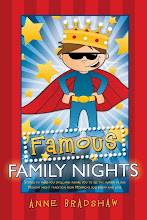By Heather Justesen
I used to be what is commonly called a discovery writer. You know, you get an idea, play with it a bit (if you can stand to wait to start writing, which I sometimes couldn't) and then sit down and start typing. This is a great way to get a book started, and I know some people just let the story take them wherever it wants to go and end up with great stories.
Me, not so much.
I was writing for several years and had only finished one book from beginning to end...the other two dozen got anywhere from 30 pages to three-quarters of the way finished before I ran out of steam or lost the plot threads.
And then a couple of years back I learned I am much happier as a plotter. It's true, if I'm excited about what I'm writing and I have the major complications spelled out I can write a 90,000 word novel in under a month. The other bonus is that I can have it cleaned up and submitted in only five or six drafts, instead of twenty-five. Can I write a new novel every month? No, I'd probably go on burnout, and the edits would never get done, but I'm capable of writing that fast and with a decent first draft if i know where I'm going.
But despite that, I still let myself get moving on my current writing project (which was one of my three-quarters finished projects from a couple of years back) without plotting out that last quarter. And then as I got to the half-way point I started to flail.
Why wasn't it coming together? Why did I feel directionless and as though the story didn't want to be written?
And then I realized I hadn't plotted it out, and it all clicked.
Now, I'm not the type to write a thirty-page synopsis for a 300-page novel. If I did that, I would never end up writing the book--it's already been written, after all. Where's the fun in that?
Instead I open up my handy spread sheet and just put a sentence for the basics of what I plan to do in that scene. Each line is its own scene and I can easily cut and paste the lines as I shift around the storyline. It helps me keep track of my story arcs, to realize when I've gone too long since a certain thread was mentioned, or if my second character hasn't had a scene in his point of view for fifteen scenes.
Sometimes once I get started writing, I don't refer back to it very often. After all, the characters have wills of their own, and sometimes things happen in different orders than you expected, or a character decides to do something you had never planned. This leaves me with enough room to change things up and go with the story the way it wants to be written, but when I get frustrated and start feeling lost, I can refer back to the original plan and realize what I still need to cover to reach my happy ending.
Writer's bock? Not anymore!
Friday, July 17, 2009
Plotting it Out
Posted by Heather Justesen at 8:30 PM
Labels: Heather Justesen, plotting, writer's block, Writing Tips
Subscribe to:
Post Comments (Atom)

















2 comments:
Great post. I like to know where I'm going before I sit down to write it.
Awesome suggestion. I'll have to try it!
Post a Comment